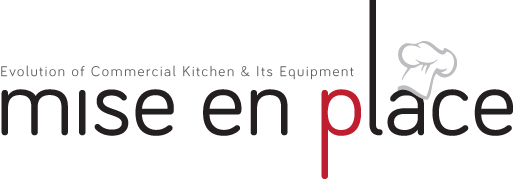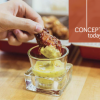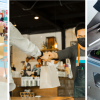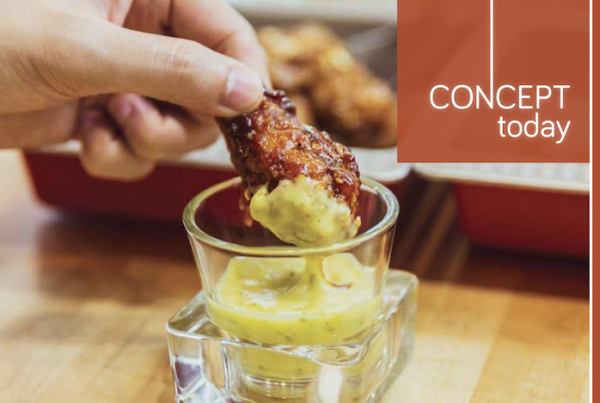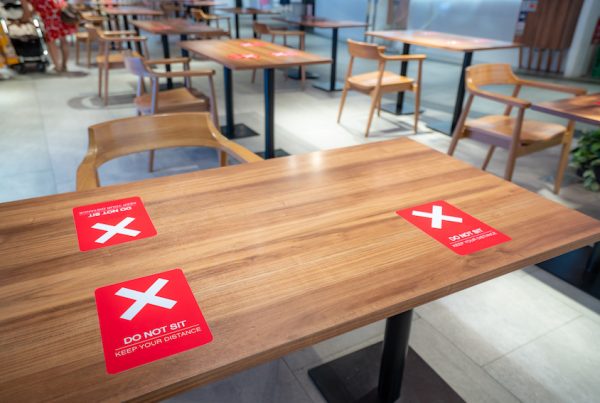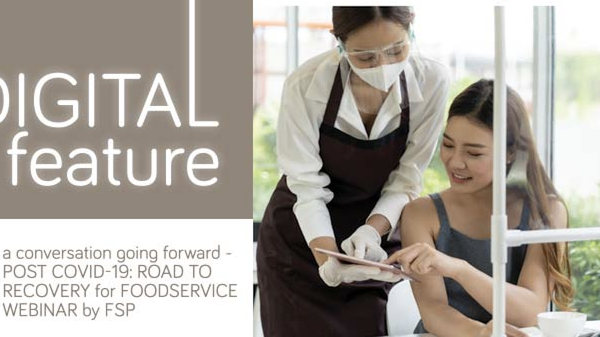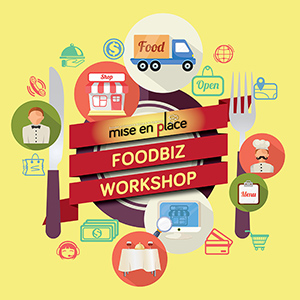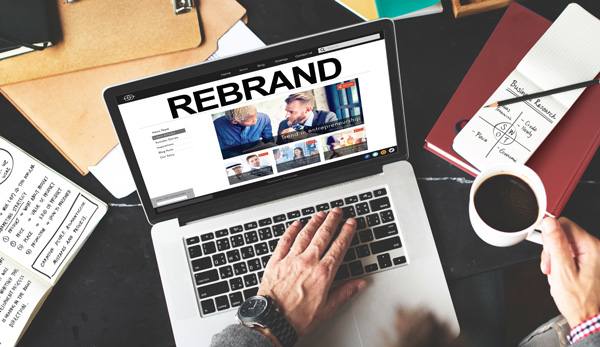
BUILDING A BRAND IDENTITY
When it comes to opening a restaurant, there are a few things absolutely necessary to prolong success through effective brand development. When I refer to restaurant brands, I mean it through ways of how a restaurant’s personality conveys its message through various elements; from logos and interior design to menus, price points, and staff training and uniforms.
Every restaurant has an identity of its own, but those that continue to prosper make an essential commitment to controlling and fostering their brand identity while others simply allow their brand to take on a life of its own. But, what about existing businesses? How do you, the business owner, take an existing business from being stagnant to a growing success?
The challenges entrepreneurs and restaurateurs encounter in most cases are: hard-to-define-and-market menus that are too large and have way too many choices, and decor that is undefined. Restaurants compete for business daily with chains that have clear menu policies, excellent or brand-conscious decor and branding that a restaurant operator is challenged to go up against. So, are you ready to rebrand for success?
THREE QUESTIONS TO ASK BEFORE MAJOR REBRANDING
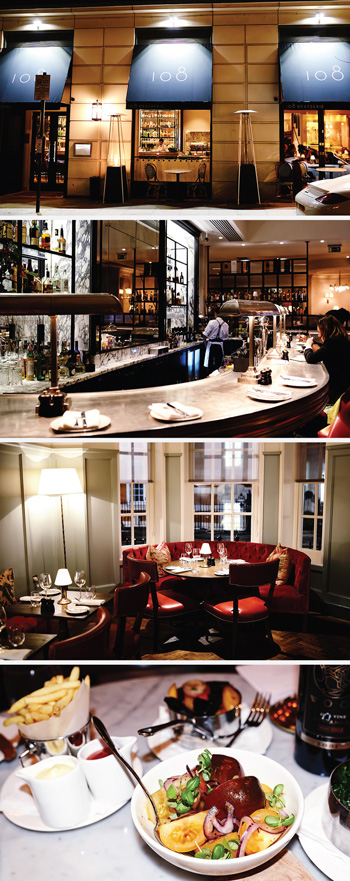
The need to rebrand happens for a myriad of reasons. It could be new ownership, a change of concept and separating a brand from a failing franchise system – just to name a few. Each one requires an understanding in aspects that are distinctive of a situation to ensure a brand is being built and handled right. Vigor Branding states that one must retain the right amount of positive brand equity while introducing a new direction successfully. It’s a dance of shedding a brand’s old skin without losing the things that made it popular to begin with.
Why Do You Think Rebranding Your Restaurant Is In Order?
Sometimes certain businesses and certain initiatives send buzzes in the industry about what the next top trend in management is and/or will be. If you are currently working on building that restaurant and see that the term ‘branding’ comes up a lot in online articles or if you’re reading about other restaurant’s successful rebranding, it might make you think that it’s something you ought to do too. But, you need to look beyond that and ask yourself more questions about why you think you really need to work on your restaurant’s brand.
Are Customers Confused About Your Brand?
When you approach your customers to talk about food, beverages, hours of operations and special events that you’re offering and he or she says “I didn’t know that you did that” or if customers are not confident with your offerings – that’s a definite sign your brand isn’t focused on a specific target or niche. Your brand isn’t communicating its offerings well and needs some work. This may indicate that its time for you to revisit your restaurant’s brand foundation and work on clarifying your offerings and message.
Are You Constantly Lowering Prices?
If you uphold your brand’s reputation, one of the benefits is that you can charge a premium for food, beverage and other offerings. Although, if your branding remains unclear, your restaurant will blend in with every other competitor nearby. And unfortunately, the only way you’re going to attract new business is by reducing prices, losing money or using vouchers. These are signs that your brand may be in trouble.
108 BRASSERIE, MAYFAIR, LONDON
Formerly known as 108 Marylebone, this restaurant went through a rebrand back in 2014. They’re a restaurant hotel in the heart of Marylebone that does Modern British cuisine. Also onsite is ‘108 Pantry’ – which focuses on cakes, pastries and doing the traditional afternoon tea.
NOT READY FOR MAJOR REBRANDING?
 If you don’t want to or can’t dedicate time and money into revamping your brand at the moment, what you can do is begin to align your brand with offerings that require minimal time and effort. Take note of these three simple things to revive your brand:
If you don’t want to or can’t dedicate time and money into revamping your brand at the moment, what you can do is begin to align your brand with offerings that require minimal time and effort. Take note of these three simple things to revive your brand:
Conduct Your Own Brand Evaluation
Part of branding is reflected in base or touch points. These points are in any way a customer or a potential customer interacts with you. Take a look at all your points especially anything online on websites like Twitter, Facebook and other review sites. See if everything is consistent across all platforms. Also, check whether they look different from your competitive landscape or whether you blend in with everybody else online.
Find Out What Customers Are Saying About You
Remember that when you build a brand, you’re putting an image and expectation out in the marketplace. Now, that image you put out there is reflected to you by your customers’ feedback. Are you projecting your desired message? And, is it up to your customers’ expectations? Constantly look out for reviews and comment sections on sites like TripAdvisor, Google Review, Facebook, Yelp and various other sites. If par t of your brand says ‘the best customer service’ and you’re reading lots of customer reviews that say other wise, then something is not right with your brand.
 Ask Your Employees To Define Your Brand
Ask Your Employees To Define Your Brand
Your employees spend the most time in your restaurant. They are your brand ambassadors and they need to live and breathe your brand. Ask your employees to tell you what the restaurant brand stands for. Ask them to give it to you in one or two sentences. If they can’t understand what the brand is (or what you would like it to be), then this creates room for improvement of your brand.
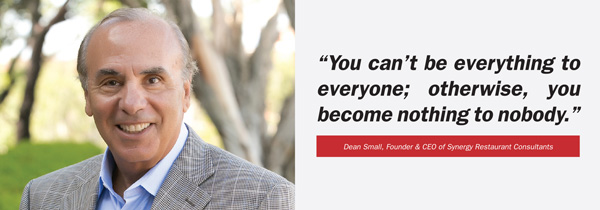
Who Do We Call? :Synergy Restaurant Consultants

There is a distinct passion for food that inspires ever y aspect of Synergy’s consulting practice. This passion stems from 29 years of successfully helping existing and aspiring restaurateurs through all aspects of the business from concept development, restaurant design, financial modeling and menu ideation to marketing, labour optimisation and training through to opening. Synergy has helped shape their client’s visions and joyously celebrated their ultimate successes through diverse project work.
Focused especially on improving the financial performance of restaurants, as well as conceptually developing new restaurant concepts, Synergy Restaurant Consultants is a results-driven global hospitality consulting group.The two founding pillars of the Synergy brand are innovation and restaurant operating efficiencies. Synergy provides practical solutions to brands in every segment of the foodservice industry so that they can achieve greater profitability, become scalable and have a food, beverage and hospitality strategy that is executable.
Mise En Place talks to Dean Small, founder and CEO of Synergy Restaurant Consultants who has more than 40 years of hands-on food service experience developing different strategies to overcome challenges faced when choosing to rebrand.
MEP: How do you come up with a concept that will remain through the test of times?
DS:Tastes and dining trends are always evolving from generation to generation. You know, a brand has got to remain innovative and be on top of dining trends or it will become fatigued. If you don’t stay ahead of what is going on in the market, you will only reach and connect with the people of today but not future generations. So, innovation is really what makes a sustainable concept.
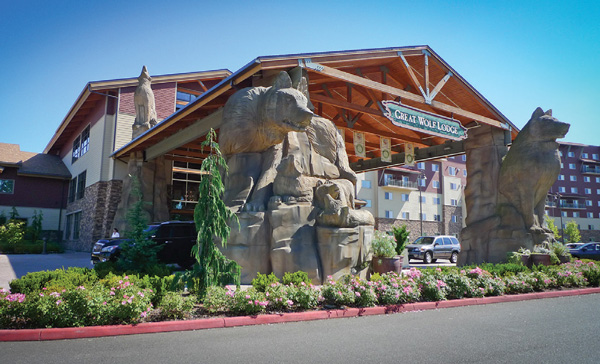
MEP: What are the mistakes owners make that cause their brand to become irrelevant?
DS:A lot of independent operators don’t really think about their concept as a brand. They just think about the restaurant in terms of operations and that’s where most people don’t realise they’re wrong. They’ve got to recognise that any restaurant, in and of it itself, is already being perceived as a brand. A brand is a promise, a certain set of expectations that people are going to have about what they are about to experience. When a brand does not fulfill a customer’s expectations in terms of food quality, hospitality and guest experience, you’re slowly going to see guest counts decline and sales soften. And oftentimes, these issues are what initiate the downward spiral.
To offset softer sales, operators typically cut back on labour to save money and what happens is service and hospitality star t to suffer or the kitchen can’t get the food out fast enough; or they have staff turnover. When you have turnover, you will have inconsistency in food execution and guest service, ultimately contributing to marginal guest experience. And again, you’re letting the brand reputation down. So, people have an expectation when they go into a restaurant because they anticipate the food is going to be prepared a certain way. It’s going to have certain flavours, consistent plating and portion size and when you star t making mistakes like reducing labor, cutting food quality – people pick up on these unfavourable changes and they vote with their feet and they take it to social media. And then, there’s Yelp! and Tripadvisor where the restaurant star ts to get poor ratings. That ultimately star ts the demise of the brand because the food, beverage and hospitality strategy wasn’t properly executed.
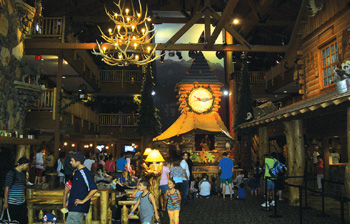 MEP: Is there a safe and smart way to rebrand an already slow business?
MEP: Is there a safe and smart way to rebrand an already slow business?
DS:There are multiple strategies you can deploy. If you’ve got a struggling business that is not per forming well there are probably numerous underlying issues that are surrounding it. It could be that the concept is fatigued in terms of décor, or food quality isn’t as good as the competitors around you or there is a perceived lack of value. So the first step is to evaluate what the underlying issues are that need to be addressed through brand refresh. In some extreme cases, the smart thing to do is basically to close it down and rebrand it with something that is more in line with what people want!
Just putting a fresh coat of paint on the wall isn’t going to make your problems go away. Moving the tables around or adding a new menu item isn’t going to solve your problems. If you have a weak and inexperienced management that is not able to connect with people and you don’t have consistency in the kitchen, you need to develop sound operating systems and standards to ensure you’re going to be able to deliver guest expectations. So, is there a safe way of doing it? Look, when you’ve got a restaurant that’s just not doing well, you have to ask yourself, why? You have to be honest with yourself. Is it the food? Is it the guest ser vice, lack of menu innovation or hospitality? The smart thing to do, which a lot of restaurant operators find painful, is to go out and objectively shop the competition and look at how they are executing. You’ve got to be really open-minded to the fact that maybe you’re not hitting on all eight cylinders and often times that’s the case. Once you have a sense of how your restaurant fits into the competitive market, the areas of your concept that need modification become more clear.
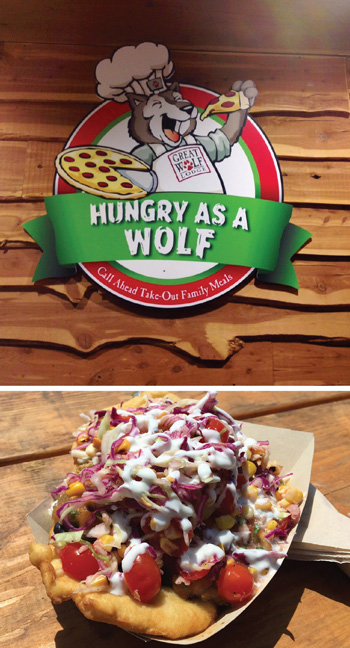 MEP: But, what if it is a brand that has existed for a while?
MEP: But, what if it is a brand that has existed for a while?
DS:People are typically drawn to a brand because there is an emotional connection. So, brands that connect with their consumers are the most successful ones. Their customers become very loyal fans and apostles of that brand. And often times, when you have brands that are family owned, it’s very difficult to make changes because there is resistance and fear from generation to generation about changing anything.
In today’s world, you have to have a very strong social media strategy. So you really need to have a multi-pronged approach to turning around or refreshing a brand. It all star ts with asking the core questions: who are we, what business are we in, who is our target customer.
I always say that not everybody in the white pages is your target customer. You have a primary core customer that hopefully loves your brand and typically you have a secondary level of customers that like your restaurant but don’t come to you as frequently as you would like. You have to focus on who your core customer is. You can’t be everything to everyone; other wise, you become nothing to nobody. And then, you’re just competing with everybody else and you end up in ”the sea of same”. You have to specialize and be known for food that is unique to your brand. You have to stand out and have an ownable and defendable, competitive point of difference, or you are going to be perceived to be just like everybody else and you’ll be competing on price, not experience.
MEP: Mind sharing what you’ve worked on with a client?
DS:Several years ago Synergy was retained by a large indoor waterpark concept with a wilderness lodge theme that operated multiple foodservice venues on site. The foodservice outlets had menus that were not connecting with their guests and they needed to make the dining concepts more relevant and competitive to drive sales and improve guest satisfaction. Their menus needed updating to reflect changing tastes and to speak to the core customer
The lodge had really beautiful, family-friendly rooms. However, many guests were leaving the facility and going to eat in restaurants in the surroundings areas because the concepts did not offer products that they wanted. They had a pizza concept in the lodge that was serving acceptable pizza but it did not meet the needs of the guests, so guests were calling out for pizzas from Dominos and Papa Johns to deliver to the lodge even though the lodge offered pizza at their dining facility. We worked with their team to rebrand the concept, made numerous food enhancements, developed more competitive pricing and updated the logo with a more of a contemporary look. The results were amazing. Guest slowly stopped ordering from other vendors and sales at the concept skyrocketed.
More than 250 internationally recognised restaurants have looked to Synergy Restaurant Consultants for a higher level of strategic thinking to maximise bottomline performance. Working with the most successful and focused concepts in the world, including 33 of the top 50 worldwide restaurant chains; Synergy Restaurant Consultants brings proven best practices and real world solutions that deliver meaningful results.
www.synergyconsultants.com
1 (888) 861 9212
